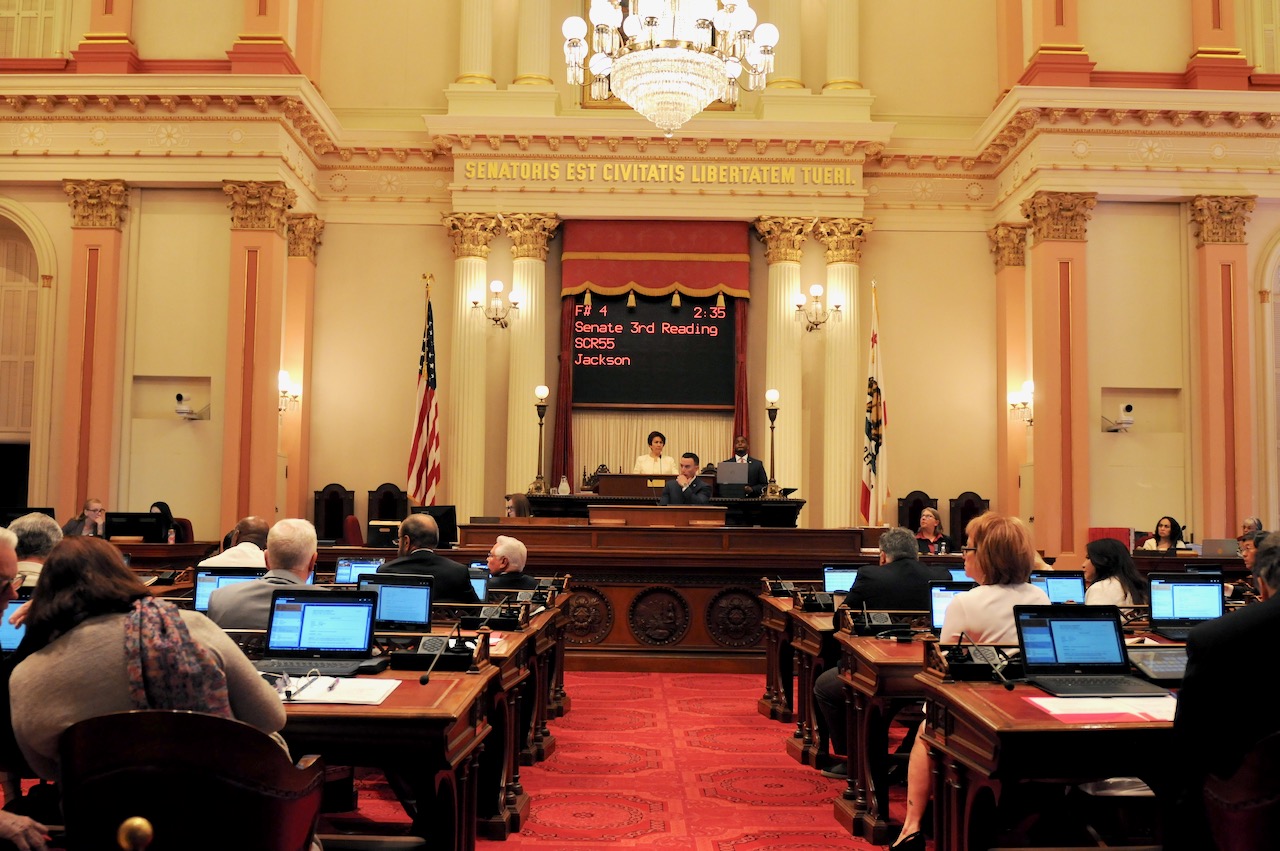
California State Capitol. (Photo: Kevin Sanders for California Globe)
What Is Improper Influence in the California Legislature?
While all these words mean ‘unworthy of trust or belief,’ dishonest implies a willful perversion of truth in order to deceive, cheat, or defraud
By Chris Micheli, October 21, 2023 8:29 am
California’s Constitution, in Article IV that deals with the legislative branch of state government, makes it a felony for a person who seeks to improperly influence the vote or official action of a state legislator.
Section 15 of Article IV not only provides that the person who seeks to improperly influence a legislator, but also the legislator who is “so influenced,” is guilty of a felony. What are the bases for this improper influence? Section 15 provides four of them:
“A person who seeks to influence the vote or action of a member of the Legislature in the member’s legislative capacity by
- bribery,
- promise of reward,
- intimidation,
- or other dishonest means,
“or a member of the Legislature so influenced, is guilty of a felony.”
What do these four bases mean?
“Bribery” is not defined in California law. One dictionary definition is the act of offering someone money or something valuable in order to persuade them to do something for you. There is almost no case law on this provision.
I found only one appellate court case. It held that picketing and leafletting by members of school employees association outside personal business offices of two members of governing board of school district, one of whom was attorney and the other of whom was accountant, did not constitute “bribery” or other corrupt practice. The court held that it was not bribery even where picketing constituted an implicit promise that if contractual demands of pickets were satisfied, picketing would cease.
What might constitute bribery? It would seem obvious that bribery under Section 15 is offering money in exchange for a vote or other official legislative action.
“Promise of reward” is not defined in California law. One dictionary definition is that someone will definitely get a sum of money that was offered.
What might constitute a promise of reward? It would seem obvious that promise of reward under Section 15 is promising the Member financial gain in exchange for a vote or other official legislative action.
“Intimidation” is not defined in California law. One dictionary definition is when you frighten or threaten someone, usually in order to persuade them to do something that you want them to do.
What might constitute intimidation? Under Section 15, it might include efforts by someone to get a Member to vote, not vote, or take an official action because the Member felt threatened or frightened.
“Other dishonest means” is not defined in California law. One dictionary definition is being deceitful or untruthful. While all these words mean “unworthy of trust or belief,” dishonest implies a willful perversion of truth in order to deceive, cheat, or defraud.
What might constitute other dishonest means? Under Section 15, it might include intentional efforts by someone being untruthful to deceive the Member in their voting or conducting other official actions.
Unfortunately, there are no reported cases interpreting Section 15 of Article IV, so there is not clear guidance on possible unlawful activity. Nonetheless, using common dictionary definitions and common sense, no person should engage in any of those four activities in their dealings with members of the California Legislature.
- Legislative Intent Does Not Equate to a Mandate - April 27, 2024
- Frequently Asked Questions about State Agency Ethics Training - April 26, 2024
- Frequently Asked Questions about When Elected Officials Take Office - April 25, 2024




